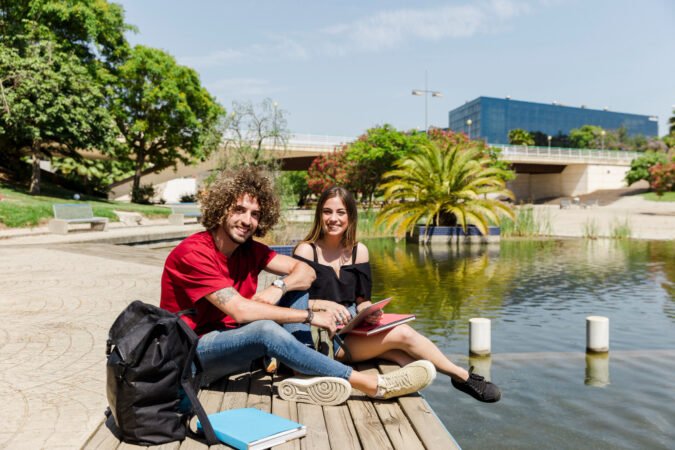The travel industry, a cornerstone of the global economy, has undergone significant transformations in recent years. From technological advancements to shifting consumer preferences and global events, the sector continues to adapt and evolve. This blog explores the current state of the travel industry, its challenges, and the emerging trends shaping its future.
The Economic Impact of Travel
The travel industry is a major contributor to the global economy, accounting for approximately 10.4% of global GDP and supporting one in ten jobs worldwide (World Travel & Tourism Council, 2023). Despite facing unprecedented challenges during the COVID-19 pandemic, the sector has shown remarkable resilience and is on a path to recovery. According to the United Nations World Tourism Organization (UNWTO, 2024), international tourist arrivals are expected to reach pre-pandemic levels by 2025, highlighting the industry’s enduring appeal and economic significance.
Technological Innovations Reshaping Travel
Technology continues to revolutionize the travel experience, from planning to booking and beyond. The rise of artificial intelligence (AI) and machine learning has enabled personalized recommendations and streamlined customer service (Gretzel et al., 2022). Virtual and augmented reality technologies are transforming destination marketing, allowing potential travelers to experience locations before booking (Buhalis & Sinarta, 2023). Moreover, blockchain technology is being explored for secure and transparent transactions in travel bookings and loyalty programs (Tham et al., 2022).
Sustainable Tourism: A Growing Priority
As awareness of environmental issues increases, sustainable tourism has become a key focus for both travelers and industry stakeholders. The concept of “regenerative travel,” which aims to leave destinations better than they were found, is gaining traction (Ateljevic & Doorne, 2023). Many countries and tourism organizations are implementing strategies to reduce carbon footprints, preserve natural resources, and support local communities. For instance, Costa Rica’s Certification for Sustainable Tourism program has been widely recognized as a model for promoting responsible tourism practices (Instituto Costarricense de Turismo, 2024).
The Rise of Experiential Travel: Modern travelers are increasingly seeking authentic, immersive experiences rather than traditional sightseeing. This shift has led to the growth of experiential travel, where visitors engage more deeply with local cultures, cuisines, and lifestyles (Pine & Gilmore, 2022). Tour operators and hotels are responding by offering unique, localized experiences such as cooking classes with local chefs, artisan workshops, and community-based tourism initiatives. This trend not only enhances traveler satisfaction but also contributes to the preservation of cultural heritage and supports local economies.
Digital Nomadism and Remote Work
The COVID-19 pandemic accelerated the trend of remote work, giving rise to a new wave of digital nomads. Countries like Portugal, Estonia, and Thailand have introduced special visas to attract these long-term travelers (MBO Partners, 2023). This shift is blurring the lines between work and leisure travel, creating new opportunities for destinations and accommodations to cater to this growing market segment. Co-living spaces, extended-stay hotels, and destinations with robust digital infrastructure are poised to benefit from this trend.
The Future of Air Travel
The aviation sector, a crucial component of the travel industry, is undergoing significant changes. Efforts to reduce carbon emissions have led to investments in sustainable aviation fuels and the development of electric aircraft for short-haul flights (International Air Transport Association, 2024). Additionally, advancements in supersonic and hypersonic technologies promise to dramatically reduce travel times for long-haul routes in the coming decades (NASA, 2023). These innovations, coupled with improved airport technologies for seamless passenger experiences, are set to transform air travel in the years to come.
The travel industry stands at a crossroads, facing both challenges and opportunities. As it continues to recover from the impacts of the global pandemic, the sector is embracing innovation, sustainability, and changing consumer preferences. By adapting to these trends and leveraging technological advancements, the travel industry is poised for a dynamic and resilient future. As travelers, industry professionals, and policymakers, our collective actions will shape the future of travel, ensuring it remains a force for economic growth, cultural exchange, and global understanding.
Written by : Farokh Shabbir
References
Ateljevic, I., & Doorne, S. (2023). Regenerative tourism: Beyond sustainability towards flourishing. Journal of Sustainable Tourism, 31(4), 705-720.
Buhalis, D., & Sinarta, Y. (2023). Virtual and augmented reality in tourism destination marketing: A systematic literature review. Journal of Destination Marketing & Management, 27, 100594.
Instituto Costarricense de Turismo. (2024). Certification for Sustainable Tourism.
International Air Transport Association. (2024). Future of Aviation Report.
MBO Partners. (2023). State of Independence in America.
NASA. (2023). Advanced Air Vehicles Program.
Pine, B. J., & Gilmore, J. H. (2022). The experience economy: Competing for customer time, attention, and money. Harvard Business Press.
Tham, A., Selen, W., & Ooi, K. B. (2022). Blockchain in the travel and tourism industry: A systematic review. Current Issues in Tourism, 25(5), 721-743.









